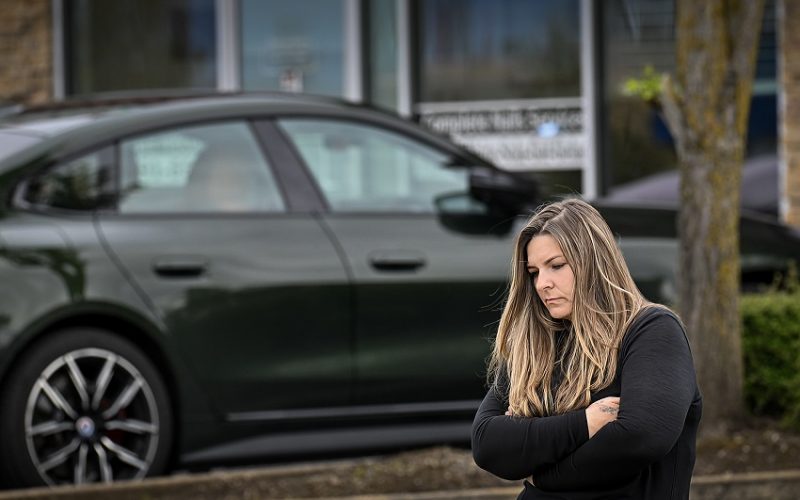Salem, OR – On a cold winter night in Marion County, Oregon, Melinda Lou Kayser’s life came to a tragic end in plain view of the public. The 48-year-old woman, whose life had been marked by struggles with mental health and homelessness, died 11 weeks after investigators determined she was capable of taking care of herself. Her death has raised urgent questions about the state of mental health care, the adequacy of public support systems, and the troubling consequences of failing to address the needs of the most vulnerable.
Kayser’s story began like many others in Oregon’s ever-growing homeless crisis—one marked by a series of complex challenges, including untreated mental illness, inadequate social support, and insufficient oversight. Marion County investigators concluded in early November 2024 that she was able to look after her own well-being, despite the numerous warning signs that she had been struggling.
Despite living in poverty and facing mental health challenges, Kayser had lived in the county for years. Friends and local advocacy groups had warned officials about her increasing instability. Still, the decision was made that she was not a candidate for state commitment, a legal process where individuals are detained for psychiatric care against their will.
By mid-January 2025, Kayser was found dead on the sidewalk in downtown Salem, Oregon. For many, her death was a stark reminder of the gaps in the state’s commitment laws and how these laws fail to provide the necessary care for people like Kayser.
In Oregon, individuals who are deemed mentally ill can be committed to treatment if they pose a danger to themselves or others. However, a rising concern is that the bar for commitment is too high, leaving many individuals without access to the critical care they need. Advocates argue that this has resulted in a system where the most vulnerable are often left to fend for themselves on the streets, particularly those suffering from severe mental health issues or substance abuse disorders.
“We have a system that says, ‘if you are not actively threatening to harm yourself or someone else, you can’t get help,’” said Sarah Williams, a local advocate for mental health reform. “But for people like Melinda, that’s not enough. She was deteriorating before their eyes, and no one stepped in.”
Kayser’s story also speaks to a larger, statewide problem. According to the latest data from the Oregon Health Authority, the state has seen a sharp increase in the number of people living with mental illness and substance abuse issues who lack access to appropriate care. A shortage of psychiatric hospital beds, along with a strained social safety net, means that many people are left without options.
“The state’s commitment laws, designed to protect individuals and society, have been undermined by a lack of resources and support,” said Dr. Steven Reynolds, a psychiatrist based in Portland. “People are falling through the cracks. And unfortunately, in Melinda’s case, the result was fatal.”
Kayser’s death was not an isolated incident. Across Oregon, hundreds of individuals living with severe mental health issues are left without the support they need. In 2024 alone, there were more than 1,000 recorded cases of people who were denied commitment despite being in crisis, according to local mental health organizations.
The tragic loss has ignited calls for reform. Advocates are urging state legislators to reconsider how mental health assessments are conducted, calling for a more comprehensive approach that takes into account the complexity of mental health disorders and homelessness. Furthermore, many are pushing for increased funding for mental health services, including crisis intervention programs and temporary shelters designed to help people like Kayser before they reach a point of no return.
In response to the public outcry following her death, Oregon Governor Tina Kotek has pledged to review the state’s mental health and homelessness policies. “We must do more to ensure that vulnerable individuals like Melinda receive the care and support they need before it’s too late,” Kotek said in a statement. “It’s clear that our current system is not working as it should, and we need to make significant changes to protect the lives of our most vulnerable citizens.”
While Melinda Lou Kayser’s life ended tragically on the streets, her death has brought renewed attention to the deep flaws in Oregon’s commitment system. Advocates hope that her story will serve as a catalyst for change—one that ensures others do not face the same fate. Until then, those who knew her can only mourn a life cut short and continue to fight for those still living on the edge, hoping that no one else will be sentenced to the sidewalk.











